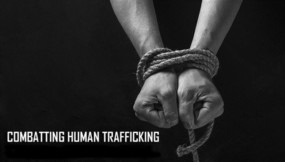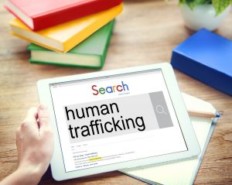Posted on 28 Sep 2016
Through the fog of smoke in a darkened club on the outskirts of the city, Zeina explains matter of frankly how she turned to sex-work.
“It’s the only job available for Syrian women like me.”
Unskilled, with a smattering of Turkish and a young child to support, Zeina stayed through three years of war in Syria, before joining around 200,000 other refugees in Antakya, a town less than an hour drive from the Syrian border. Making just 10 Turkish Lira (3.30 USD) for every drink that’s bought for her and substantially more than that through prostitution. “If I don’t have any customers,” she continues “the owner still pays me 20TL (7USD) a night – I am very lucky to work here”. Looking around the grim club, at the lustful men and bored, chain-smoking women, it is difficult to agree. But in context, Zeina has a point.
Far worse practices are taking place within the 3 million or so Syrian community in Turkey (as indeed in other neighbouring states). Instances of early and forced marriages, polygamy, sexual harassment, human trafficking, and rape of Syrians in Turkey, are all key concerns, according to a 2014 report by the Association for Human Rights and Solidarity with the Oppressed (known in Turkish as Mazlumder), and reiterated by numerous reports since.
For the most part, the root causes of these crimes are economic desperation, an information deficit on refugee rights and the absence of a support structure. For those reasons, a December 2015 report into human trafficking by the International Center for Migration Policy Development [ICMPD] revealed that the most common type of exploitation is carried out by family members, acquaintances or neighbors.
“We found that women are forced into prostitution because they want to buy bread for their children,” said Eren Keskin, the lawyer and vice-president of the Human Rights Association of Turkey (IHD). Desperation drives parents to sell their daughters – sometimes as young as 13 – to men who already have wives, thinking that the men will be able to support them financially. But unlike Syria, polygamy is illegal in Turkish law and therefore only the first wife of man is afforded legal protection under the law; this leaves the door open to serious exploitation. Anecdotal evidence suggests that the practice of Syrian women being exploited for sex in exchange for rent, work and other in-kind transactions is common. Samaa, a Syrian refugee interviewed by the Christian Science Monitor in late 2014, says exploitation for sex is rampant, revealing for instance that “A restaurant owner told me he would employ my children on the condition that I sleep with him one night.”
Although the ICMPD study suggests that most exploitation for sex takes place once Syrians have independently travelled to Turkey, there is evidence of formal, organised crime networks involved in sex trafficking. A report by the Gatestone Institute reveals that criminal gangs bring refugees to towns along the border or into the local bus terminals where “refugee smuggling” has become a major source of income.
Professional criminals convince parents that their daughters are going to a better life in Turkey. The parents are given 2000-5000 Turkish liras ($700-$1700) as a “bride price” – an enormous sum for a poor Syrian family – to smuggle their daughters across the border.
Yet despite significant anecdotal evidence, it difficult to determine the extent of human trafficking and related crimes due to a dearth of data and sensitivities around the topic. Victims of trafficking often fail to report crimes due to stigma, fears that they will be arrested or deported, and because of a lack of alternative, legitimate or safer income generating alternatives. Given this, and the fact that human traffickers are often tried under different charges, official Turkish government data on human trafficking suggests that “the effects of the war and refugee crisis on trafficking in persons have been negligible.”
This presents a challenge for Turkish law enforcement, which has also been affected by the removal or suspension of around 8,000 policemen in the aftermath of the failed coup attempt in mid-July. For while Turkey has been more proactive at clamping down on migrant smuggling networks than Syria’s other neighbours, with anti-trafficking legislation reinforced in 2002 and 2005, and local and international organizations are working to reduce the factors that fuel exploitation, effective policies need to be based on more reliable data.
To its credit, Turkey has made improvements in the three areas measured by the US State Department’s annual Trafficking in Persons Report, namely Protection, Prevention, and Prosecution. In the past year, anti-trafficking legislation has been passed, an increased number of criminals have been prosecuted, and working groups have been convened to strengthen institutional cooperation, among other measures. Yet, for Turkey to meet the minimum standards for the elimination of trafficking, it must go further. Convening its interagency trafficking taskforce and renewing its dated national anti-trafficking action plan are two areas for improvement identified in the report.
But efforts by law enforcement need to be in combined with increased efforts by local and international agencies, particularly those working on protection and livelihood issues, so that victims of exploitation are more easily identified, treated and some of the ‘pull factors’ that increase vulnerability to exploitation – such as financial desperation – are minimised.
Blog is written for the Global Initiative by Shane Farrell, photo credit to AP/Al-Jazeera



